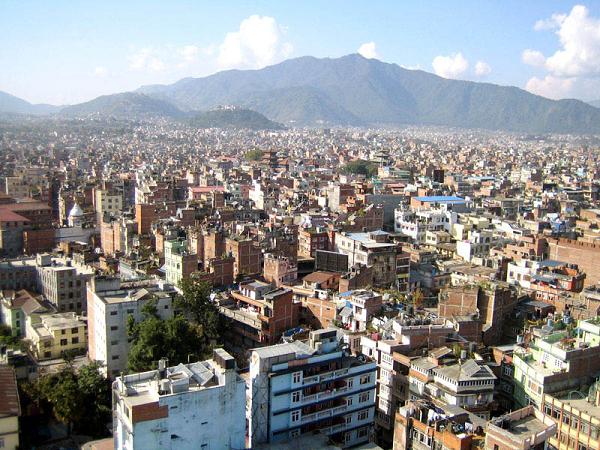Acknowledge from the outset that if you go abroad 
there is a chance (or risk) that you might never return. If you eventually do go home you might experience that life has changed and it may never be like it was before.
I think the experience of working overseas allows you to see your own culture more clearly and put it into a larger context. It gets you away from local, immediate points of reference into more universal ones. You might be in the midst of explaining something about your home culture and all of a sudden it might strike you as a very odd custom because you are seeing it for the first time through the lens of your host culture. It affects who you are as a person, not just what you do!
Life may well feel more vivid, as if the sense of being alive is intensified. This is perhaps because you are having to pay attention to a lot of things you would normally take for granted in your home culture.
“Living life in technicolour, vividly ” is exactly why I love working cross-culturally. And I encourage people to be more open to that vividness, rather than just training them on “skills”.
Be mindful of the other culture; do not to go to the other country with any beliefs of superiority or inferiority. Be willing to learn. Suspend judgment. Instead of reacting negatively, ask WHY they are doing things that way?
The most important thing is to keep an open mind. This may sound banal, but it is not. When we keep an open mind, we also concomitantly accept that we are guests, and must do our best to identify, understand and, if possible, respect alternative, perhaps very different patterns of thinking and doing. Keeping an open mind does not mean we must tacitly accept all that we perceive. It does mean that we broaden our scope, that we learn about others (and ourselves), and, in some cases, adopt new behaviour patterns. When we keep an open mind, we let go to the power of inquiry, and we learn. Knowledge gained as such is unique, and, in the long run, extremely valuable.
Be ready to find out who you are, culturally, and to begin to understand where you are from. This is the first step to understanding where you are. This may sound trite, however living in a different cultural milieu brings out certain culturally influenced attitudes and behaviours that we don’t notice when we are “at home” because they fit into a norm.
Keep an open mind and develop a multi-perspective ability this will allow for the development of the necessary vision to develop your career and add value to any organisation. The experience of another culture is a boon for the international manager that adds immense value to the career and growth of the person so get ready to take their sight to the next level which can only happen with an open mind.
I would say foremost: develop and be mindful of the need to take in multiple perspectives before making decisions , making assumptions or taking actions in a multicultural environment.
Check out Edgar Schein’s definition of culture because it makes it clear that groups develop culture over a long period of time and that this is what helps them survive. Read more here.
For me, the most important part of any intercultural encounter is to go into it realising that a person’s or group’s culture meets certain needs for them (possibly consciously but in any case subconsciously) and therefore makes sense to them. “They” do things the way “they” do them because it works for “them”. If you want to get along with people from different cultures, you must work on that assumption and negotiate what might work for the two (or more) of you rather than imposing your ideas of what works. The disadvantages–lack of trust, de-motivation, and the absence of commitment–of not basing your actions on that assumption are otherwise too great.
In short :
- Be enthusiastic, open and aware.
- Do not assume anything and approach the new culture with respect; always to “ASK” if you don’t understand.
- Keep a sense of humour and let down your guard go at times!
- Be curious. Show you are really interested in finding out and understanding more about the other country/culture.
- Expect the unexpected, and expect that the reasons behind the unexpected are different from any expectations you have ever had!

Over the next few weeks you will find that some of your colleagues 
aren’t taking part in the usual water-cooler gossip sessions or have taken to declining offers of coffee. That’s because it’s Ramadan. Muslims are called by their religion to celebrate the month of Ramadan by coming together in worship, fasting each day for thirty days from dawn until sunset. While this may seem like a tremendous feat, consider this: Fasting while working is an even greater endeavour! So, how can we help our colleagues? Is there an etiquette to follow?
Read more.. »

Fairtrade Fortnight begins today!
There are approximately 1.5 million farmers and workers, working across 63 countries producing Fairtrade products. This year, Fairtrade Fortnight, is asking everyone to take a step for Fairtrade. The target is to gain 1.5 million steps, one for each Fairtrade worker and farmer. These steps could simply include buying a new Fairtrade product, hosting a Fairtrade chocolate tasting session with friends, or recommending a Fairtrade product to a friend or a colleague. Basically, taking steps for Fairtrade Fortnight are about making new consumer choices.
Read more.. »

Today is Human Rights Day! The day commemorates the date in 1948 when the United Nations adopted the Universal Declaration of Human Rights. Today, the declaration is available in 360 languages, with new translations still being added.

781 million adults across the globe cannot read or write.
This year’s theme for Human Rights Day is “My Voice Counts.” The United Nations has been hosting a series of Google+ hangouts since November 22nd, giving the public a chance to engage with senior UN officials and leading experts on the rights of minorities, persons with disabilities, to discuss the impact of business on human rights, and beyond.
Although there have been great advancements in gender and race equality since 1948, human rights violations still happen every day all around the world. According to the Amnesty International annual report, in 2006, 20,000 people were on death row. 69 countries still use the death penalty. Similarly, in 2006, 1 in 3 women had been beaten, coerced into sex, or otherwise abused.
Read more.. »


Today is the International Volunteer Day!
The day aims to thank all volunteers for their efforts, and to highlight the importance of volunteer work in promoting peace and sustainable development across the globe.
International Volunteer Day holds a special importance for me. My first experience of real volunteer work happened, not so long ago, in 2009. I was on my last year in high school and decided to join the school’s Habitat for Humanity club. Habitat for Humanity is an organization that aims to help “families escape the nightmare of housing poverty.” Our high school club arranged various fundraising events throughout the school year, and in May ten of us travelled to Krabi, Thailand to help rebuild a home to one of the families who lost their house in a tsunami a couple of years before. For me the experience was both fun and exciting, but I now feel that I didn’t understand the full meaning of our work until much later.
Read more.. »

“Take a stand for teachers!” is the slogan for this year’s World Teachers’ Day.

1.7 million teachers are needed for 2015
The aim of the day is to mobilize support for teachers world wide. Taking a stand for the teaching profession means providing adequate training, ongoing professional development, and protection for teachers’ rights.
A quality education offers hope and the promise of a better standard of living across the globe. There can be no quality education without competent and motivated teachers, however, which is why World Teachers’ Day aims to recognize the great efforts of teachers world wide.
Read more.. »

Today is both the International Day of Nonviolence and the birthday of the Indian freedom fighter Mahatma Gandhi.

Mahatma Gandhi was a supporter of nonviolence
Gandhi’s birthday was chosen to mark the International Day of Nonviolence because his role as a promoter of freedom and civil rights movements around the world has been enormous. The day was established by the United Nations in 2007.
Gandhi was one of the first to distinguish between pacifism and nonviolence. Both pacifism and nonviolence oppose war and violence, but nonviolence accepts and embraces the necessity of struggle in achieving social change. Unlike some cases of pacifism, nonviolence never ignores conflict. Nonviolence has many activist elements, whereas pacifism is usually an personal, individual viewpoint and not necessarily connected to politics.
Since Gandhi’s times, nonviolence has developed into a widely accepted political philosophy. The three main categories of nonviolent action are:
1) Protest and persuasion, i.e. street marches
2) Non-cooperation
3) Nonviolent interventions such as blockades and occupations
Unfortunately, most world powers still see violence as the superior technique for resolving conflicts. Scholar Theodore Roszak once said, “People try nonviolence for a week, and when it ‘doesn’t work’ they go back to violence, which hasn’t worked for centuries.”

In 2008, for the first time in history, more than half of the world’s population was living in cities.

Today more than 50% of the world's inhabitants live in cities.
Today is World Habitat Day, and this year’s theme is Changing Cities, Building Opportunities.
World Habitat Day was first observed in 1986. The purpose of this day is to highlight the role of shelter as a basic human right, and reflect on the state of our cities and towns around the world. This year’s urban theme was chosen because cities are engines of growth, and across the globe more and more people are moving into cities in the hope of a better future. According to research done by the Massachusetts Institute of Technology cities make up only 2% of the world’s surface, but they house more than 50% of the world’s population, consume 70% of the world’s energy, and are responsible for the 80% of the world’s carbon footprint. Research from Yale predicts that by 2030 10% of the world’s surface could be urban, most of this expansion happening in Asia…
Read more.. »

Children’s book week has been happening the first full week of every October for the past 80 years.

The Twits by Roald Dahl
It is an annual celebration of reading for pleasure for children. This year’s theme for Children’s Book Week is Heroes and Heroines.
Here are a few favourite quotes from famous children’s authors to celebrate Children’s Book Week:
Read more.. »



 Hello, I'm Deborah Swallow and, for the last fifteen years, I've worked in over thirty countries addressing the complexities of people working internationally across multiple cultures, so individuals and organisations alike can gain an authentic competitive edge and win in international markets.
Hello, I'm Deborah Swallow and, for the last fifteen years, I've worked in over thirty countries addressing the complexities of people working internationally across multiple cultures, so individuals and organisations alike can gain an authentic competitive edge and win in international markets. 